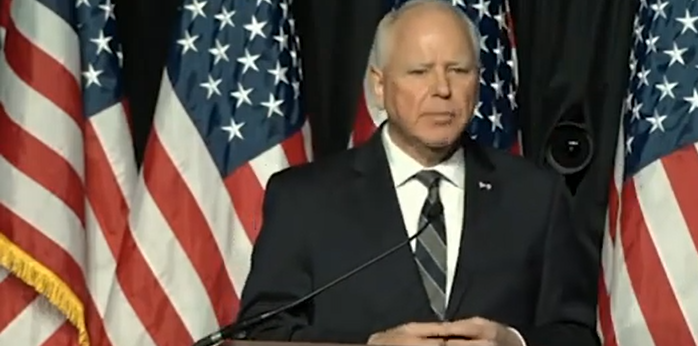Minnesota Governor Tim Walz recently came under the spotlight for his comments in May 2020, where he claimed responsibility for preventing further riots in Minneapolis as the city was engulfed in chaos and destruction. “The responsibility to ensure it doesn’t happen falls upon me, and I will do everything in my power to do that,” Walz told the media on May 29, 2020, when questioned about the likelihood of continued unrest.
Republicans attack Walz's handling of George Floyd protests https://t.co/fAGeKA56jQ
— BBC News (World) (@BBCWorld) August 7, 2024
Walz acknowledged that he couldn’t “assure” the media that riots wouldn’t continue, but emphasized it was his personal duty to prevent further destruction. “As I said, I spent, myself, 24 years in the National Guard. I’m surrounded by good people. We’re pulling the assets, and I’m going to need the help of Minnesotans, like we do on a lot of this. I’m going to need folks to cooperate to get this through. I want to acknowledge, again, that pain that people are feeling, the need to get justice,” he added.
Minneapolis became the epicenter of the 2020 riots after George Floyd, a Black man, died at the hands of a White officer during a police encounter. Floyd’s death sparked a wave of social justice protests and riots across the nation, coinciding with the COVID-19 pandemic and government-mandated lockdowns ahead of the 2020 election.
Despite Walz’s comments on May 29, 2020, local media reported that Minneapolis experienced another night of intense riots. “Protesters blanketed the area near the Fifth Precinct, heavily damaging at least seven buildings – including a U.S. Post Office, a Wells Fargo branch, a staffing agency, and a Subway in a nearby strip mall,” reported the Star Tribune.
Governor Walz’s handling of the situation has been a topic of intense debate. While he attempted to address the pain and demand for justice felt by many, the continued destruction highlighted the challenges of managing civil unrest during such turbulent times.

